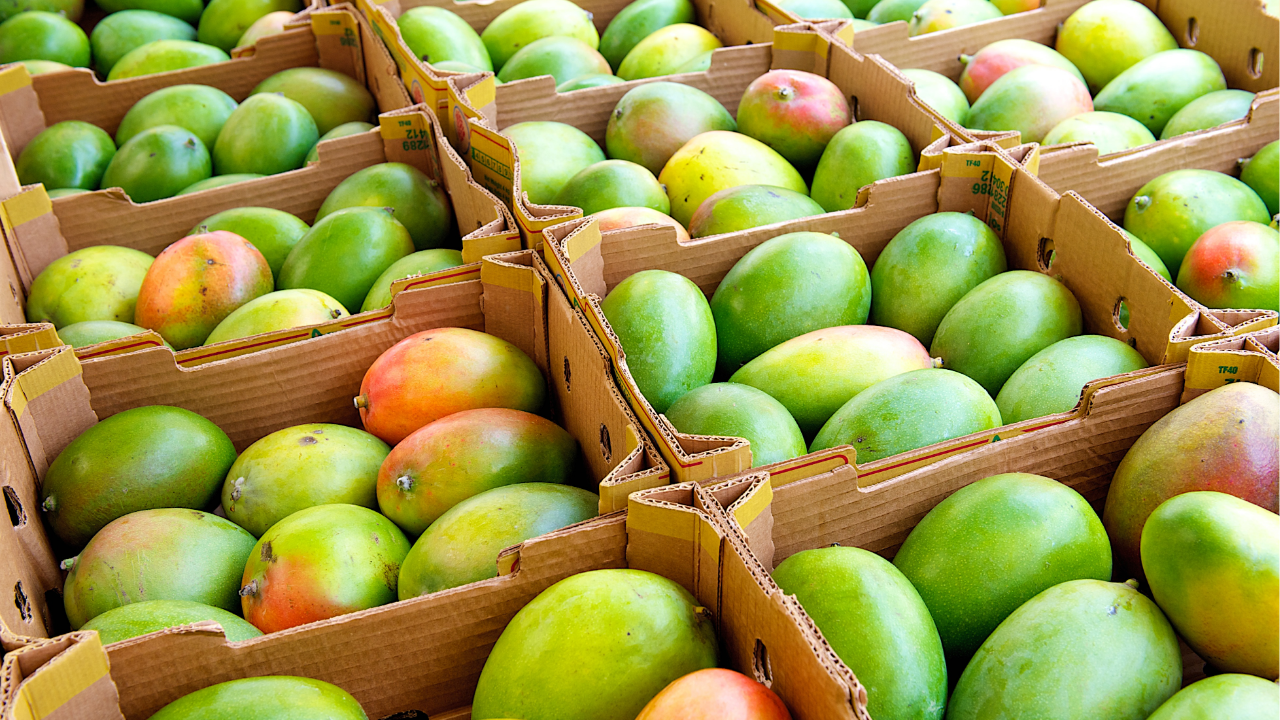US Rejects 15 Indian Mango Shipments Over Documentation Errors, Exporters Suffer $500,000 Loss
In a setback to India’s agricultural export ambitions, at least 15 shipments of mangoes from India were recently rejected by US authorities at major entry points including Los Angeles, San Francisco, and Atlanta. The shipments, though confirmed to be pest-free and treated as per US standards, were turned away due to documentation inconsistencies tied to mandatory irradiation procedures.
These incidents come at a time when India is looking to strengthen trade ties with the United States, making the losses more than just financial—they may also impact diplomatic momentum.
Exporters Left with No Choice But to Destroy Mangoes
Faced with the option to either destroy the fruit or send it back to India, all exporters chose the former. Mangoes are a perishable commodity, and returning them across international borders is not only impractical but also extremely expensive. The collective financial hit to the exporters is estimated to be around $500,000.
For many in the trade, the move is not only disheartening but also confusing. The mangoes in question had reportedly undergone the required irradiation treatment in Mumbai on May 8 and 9, which involves controlled exposure to radiation to eliminate potential pests and extend shelf life.
Root Cause: Administrative Errors, Not Pest Risk
According to industry sources and media reports, the rejection was not due to the presence of pests or any health risks, but rather due to inaccuracies in the documentation—specifically, the PPQ203 form. This crucial certificate is issued under the supervision of the US Department of Agriculture (USDA) after the fruit undergoes irradiation at an approved facility in Navi Mumbai.
Exporters argue that if the treatment hadn’t been conducted properly, the PPQ203 form would not have been issued in the first place. One exporter affected by the rejection explained, “We followed every protocol and received the form signed by a USDA official. Yet, we are the ones bearing the brunt of someone else’s clerical error.”
Systemic Gap in Export Oversight?
The facility in question, managed by the Maharashtra State Agricultural Marketing Board (MSAMB) in Vashi, Mumbai, is authorized by the USDA and is responsible for handling the irradiation and documentation process. However, when approached for clarification, MSAMB did not respond to media queries.
The Agricultural and Processed Food Products Export Development Authority (APEDA), which functions under India’s Ministry of Commerce and Industry, noted that the issue lies within the jurisdiction of the MSAMB facility and redirected inquiries accordingly.
Impact on US-India Trade Talks
This unfortunate incident unfolds even as India and the US prepare to finalize a multi-phase trade agreement aimed at lowering tariffs and boosting bilateral trade. India is pushing for better access in sectors like textiles, gems and jewellery, and agricultural exports—including mangoes, grapes, and bananas. In return, the US is seeking reduced duties on industrial goods, electric vehicles, dairy products, and tree nuts.
Any disruption in the flow of high-value agricultural exports like mangoes, especially when caused by administrative lapses, could cast a shadow over ongoing negotiations.
What Lies Ahead for Indian Exporters?
With the US being India’s largest mango export destination, ensuring foolproof export processes has never been more important. Traders are now urging both Indian and US authorities to streamline and digitize documentation procedures to avoid such costly errors in the future.
The rejection of mango shipments not only affects exporters financially but also dents the reputation of India’s agricultural supply chain at a global level. As discussions for broader trade reforms move forward, ensuring consistency, accountability, and transparency in procedural compliance will be critical for fostering trust between trading partners.


